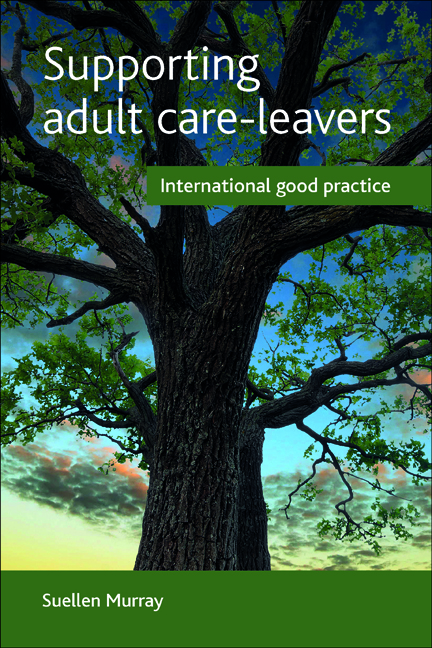Book contents
- Frontmatter
- Author biography
- Acknowledgements
- Contents
- List of abbreviations
- List of tables, figures and boxes
- One Introduction
- Two Care and its aftermath
- Three Public inquiries
- Four Apologies, memorials and other acknowledgements
- Five Reparation and redress
- Six Specialist support
- Seven Access to records and family reunification
- Eight Advocacy and consumer participation
- Nine Good practice in supporting adult care-leavers
- Notes and references
- Select bibliography
- Index
Three - Public inquiries
Published online by Cambridge University Press: 01 September 2022
- Frontmatter
- Author biography
- Acknowledgements
- Contents
- List of abbreviations
- List of tables, figures and boxes
- One Introduction
- Two Care and its aftermath
- Three Public inquiries
- Four Apologies, memorials and other acknowledgements
- Five Reparation and redress
- Six Specialist support
- Seven Access to records and family reunification
- Eight Advocacy and consumer participation
- Nine Good practice in supporting adult care-leavers
- Notes and references
- Select bibliography
- Index
Summary
With knowledge comes responsibility. (Helen Holland, adult care-leaver and advocate, 2013)
Helen Holland, quoted here, is a founding member of the Scottish advocacy and support organisation In Care Abuse Survivors (INCAS). INCAS has lobbied for a full public inquiry into care and has had input into Scotland's National Confidential Forum, discussed later. Such inquiries produce knowledge, and Holland draws our attention to their implicit purpose: that this knowledge must then be used to inform responses. Advocacy groups such as INCAS play an important role in campaigning for public inquiries, which, in turn, have typically been the impetus to bring about system reform of varying degrees. Inquiries of one sort or another have been held in all five countries under discussion in this book, and include those with national reach, which are largely the focus of this chapter. Other more local or organisational enquiries have also been held. While public inquiries are the focus of this chapter, it is important to note that there are other forums in which knowledge about care and its outcomes have been identified. The Law Commission of Canada's report of 2000, Restoring Dignity: Responding to Child Abuse in Canadian Institutions, in discussing redress, very helpfully details the range of ways in which such information may be gathered. Criminal justice prosecutions, civil law actions, criminal injuries compensation programmes, ombudsman's inquiries and other community initiatives are all ways in which this may occur.
In this chapter, we first consider, generally, the purpose and nature of public inquiries. We then turn to a specific discussion of care-related public inquiries. While these inquiries have typically, but not always, had a focus on abuse in care, they have taken various forms, and the range is presented from across the five countries. Variations in the scope of these inquiries include how abuse is defined and whether specific forms of abuse are targeted, the range of population groups included, the time period covered, and the forms of care analysed. While highly significant, attention to identity issues and disconnection from family and community are not always identified as an initial key concern of public inquiries. The distinguishing features of public inquiries are highlighted, including the circumstances of their establishment and their structure, sources, findings and outcomes. In particular, I pay attention to the three countries where national public inquiries have been held: Australia, Canada and Ireland.
- Type
- Chapter
- Information
- Supporting Adult Care-LeaversInternational Good Practice, pp. 37 - 64Publisher: Bristol University PressPrint publication year: 2015

